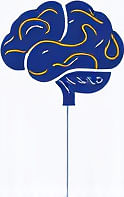Practical Strategies for ADHD and Meeting Preparation in Remote Work
 by Lilian Nienow
by Lilian Nienow
For adults with ADHD, preparing for remote meetings can pose unique challenges, but simple strategies can improve focus and reduce stress. This article offers empathetic advice on organizing thoughts, managing time, and maintaining balance to boost productivity in a remote setting.

Remote work offers flexibility, but for adults with ADHD, meetings can present difficulties. These sessions demand focus and organization, which might feel overwhelming at times. ADHD often involves challenges like distractions or difficulty with planning, making preparation essential.
One key aspect is creating a structured routine. Begin by setting aside specific time before a meeting to gather thoughts. This helps in reducing last-minute rushes. For instance, use a simple notebook or digital tool to jot down agenda items and key points. By doing so, you build a sense of control over the discussion.
In remote settings, the environment plays a big role. Choose a quiet space free from interruptions. This could mean informing family members of your schedule or using noise-cancelling headphones. Such steps support better concentration during calls.
Now, let's look at specific preparation techniques. Start with breaking down the meeting into smaller parts. Identify the main topics and your role in them. This method aids in prioritizing what matters most. For example, if the meeting involves project updates, prepare notes on your contributions ahead of time.
Tools can be helpful here. Apps that allow voice notes or quick lists make capturing ideas easier. Remember to keep things straightforward; overload can lead to frustration. Remote work routines benefit from these tools, as they adapt to individual needs.
During preparation, incorporate short breaks. After outlining points, step away briefly to clear your mind. This practice enhances mental clarity and prevents burnout. It's important to listen to your body and mind, ensuring you approach meetings with energy.
Handling the actual meeting requires its own strategies. Use visual aids like a printed agenda to stay on track. If you lose focus, a discreet signal like squeezing a stress ball can bring you back without disrupting others. These tactics promote active participation.
After the meeting ends, take time to review what happened. Note any action items and reflect on what worked well. This reflection helps in refining your approach for future sessions, fostering ongoing improvement.
Balancing work and personal life is crucial for those with ADHD. Schedule meetings during your peak focus periods, if possible. Avoid back-to-back sessions to allow recovery time. For example, follow a meeting with a walk or a relaxing activity to recharge.
In practice, many find that combining these strategies leads to better outcomes. A simple daily checklist might include: reviewing the agenda, preparing questions, and ensuring your setup is ready. Lists like this provide structure without overwhelming detail.
It's also helpful to communicate needs with colleagues. Share that you might need a moment to process information, creating a supportive atmosphere. This openness can lead to more inclusive remote teams.
Over time, these habits contribute to greater confidence. Productivity improves as you gain tools to manage challenges effectively. For adults with neurodivergent conditions, such as autism or ADHD, these adjustments make remote work more accessible.
Finally, be kind to yourself. Progress comes from small, consistent efforts. By applying these tips, you can achieve a healthier balance between work demands and personal well-being.
Common Challenges and Solutions
Individuals with ADHD might face issues like forgetting details or feeling scattered. One solution is to use timers for preparation phases. Set a timer for 15 minutes to focus solely on meeting notes; this creates urgency without pressure.
Another challenge is maintaining engagement during longer calls. Try techniques like standing up periodically or using a favorite fidget item. These methods keep energy levels steady.
Building Long-Term Habits
To sustain these practices, integrate them into your routine gradually. Start with one tip per week and build from there. Over time, this leads to lasting changes in how you handle remote meetings.
For those with autism, similar strategies apply, with adjustments for sensory needs. Ensure your remote setup includes comfortable lighting and minimal background noise to support focus.
In summary, with thoughtful preparation and self-care, remote work can become a positive experience. These approaches not only aid in meetings but also enhance overall productivity and balance.
